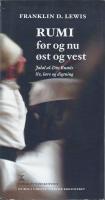
Academic Bio
I teach Persian literature and language, both classical and modern; medieval Islamic thought and literature; Islamic mysticism (“sufism”); Baha’i Studies; Iranian cinema; and translation history and theory. My research focuses on Persian as a prestige vernacular of the Islamic world, and as trans-national literary and intellectual lingua franca. I focus on the poetry and belles lettres of the Samanid to Safavid periods, as well as 20th-century poetry & prose, from the perspectives of genre, performance, narratology, semiotics, hermeneutics, homiletics, the sociology of literary production, codicological and editorial theory (for Persian, Arabic and medieval European texts), and the translation and reception of Middle Eastern literature in the West. I find the intersections of literature and religion particularly fascinating, especially the mystical and esoteric traditions in the Islamicate world (including Sufi, Shiʻi and Baha’i thought and theology). An ongoing interest in Mowlânâ Jalâl al-Din Rumi is reflected in my monograph on the subject, a book of literary translations of his poems, a guest-edited special journal issue focusing on the current state of Rumi studies, and an edition and forthcoming translation of the discourses of Borhân al-Din Mohaqqeq of Termez, the teacher who purportedly initiated Rumi into the mystical tradition. Other publications include translations of modern Persian prose and poetry, and articles on Ferdowsi, Aḥmad-e Jâm, Najm al-Din Dâya, ʻAttâr, Saʻdi, Hâfez, Jâmi, Bozorg `Alavi, Mohammad-ʻAli Jamâlzâdeh, Zoyâ Pirzâd; Persian literature and the Qur’ân, Persian literature and spirituality, the Sufi orders, hagiographical traditions, the writings of Bahâ’ Allâh and ʻAbd al-Bahâ (Some articles are available on my academia.edu page).
I currently serve as the Chair of the Department of Near Eastern Languages and Civilizations (NELC), but also maintain affiliations with the Center for Middle Eastern Studies, the Committee on Medieval Studies; the program in Fundamentals: Issues and Texts, and the Islamic Studies Program at the Divinity School. See here for information on the Persian program and Iranian Studies at the University of Chicago.
As President of the American Institute of Iranian Studies (AIIrS), I am involved in academic exchange with Iran (see the AIIrS Facebook page for news about Iranian Studies). The email list Adabiyat, which I established here at the University of Chicago in 1995, allows scholars, students, publishers, writers and poets of Persian, Arabic, Turkish and Urdu literatures to pursue academically-oriented discussion of Middle Eastern literary traditions. For lectures and cultural events related to Iranian studies in the northern Illinois area, follow the Chicago+ Iranians page on Facebook (Iranians have been performing in Chicago at least since the 1893 Columbian Exposition). Students and faculty meet for a weekly Persian Circle (انجمن سخن فارسی); hear the recorded archive of past talks (here and there). Local events are also announced via our Persian events email list. For lectures and events in English about the wider Middle East, check the webpage of the Center for Middle Eastern Studies, or follow the announcements on its email list; and for the Ancient Near East, check the events at the Oriental Institute and visit the OI Museum. And don’t miss the gatherings of the student-run Persian Cultural Society (also on Facebook).
Selected Publications
Recent & Regularly Taught Courses
- PERS 30006, Survey of Persian Poetry
- NEHC 20602/30602, Islamic Thought & Literature 2 (950-1750 CE)
- PERS 30010, Survey of Persian Literature
- The Cinemas of the Middle East and India
- Translation of Middle Eastern Literatures: History and Praxis
- The Persian Ghazal as Lyric Genre
- Ferdowsi’s Shahnameh
- Rumi and Islamic Spirituality
- Sufism and Islamic Spirituality: Mysticism, Metamorphosis and the Miraculous
- Persian Paleography and Codicology



